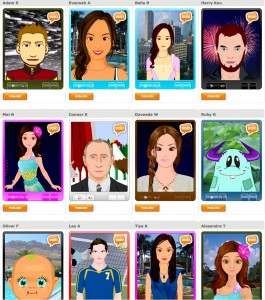1. How can objects help us to remember?
2. Which objects have been given special meaning to help us remember WW1?
3. How have authors and illustrators given objects special meanings?
4. How can we remember WW1 by using an object to create a text?
Monthly Archives: March 2015
Remembering the Past through Symbols – Year 5
https://www.awm.gov.au/commemoration/anzac-day/
1. What are some examples of WW1 memorials and how are they persuasive ‘text’?
2. How have authors used symbolism to commemorate WW1?
3. How and why does symbolism persuade the reader that it is important to remember?
4. How can I produce a multimodal text which used symbolism to engage and persuade my reader to commemorate WW1?
My Grandad Marches on ANZAC Day – Year 3/4 text: Who Tells the Story?
1. What is point of view and whose point of view is privileged in a story?
2. Whose story do we hear in texts from WW1?
3. How has one author used different points of view to tell a story from WW1?
4. How can I tell a WW1 story from the point of view of one of the participants?
The Images of War – Year 7
1. What is imagery and why do authors use it as a way of representing their experiences?
2. How have authors used imagery in visual texts to represent WW1?
3. How have authors used imagery in poetry to convey their experiences of war?
4. How can I use imagery to represent WW1?
Year 6 Research Topics
Global Warming
http://www.greenpeace.org/international/en/campaigns/climate-change/
http://www.climatehotmap.org
http://www.epa.gov/climatechange/kids/
http://www.abc.net.au/science/earth/climate/uncertain.htm
http://wwf.panda.org/about_our_earth/aboutcc/
http://www.makemegenius.com/index.php?type=0
Clean Air
http://education.usgs.gov
http://www.clean-air-kids.org.uk
Human Rights
http://www.un.org/en/events/humanrightsday/
https://www.humanrights.gov.au/human-rights-education-and-training
http://www.pdhre.org/rights/refugees.html
https://www.humanrights.gov.au/education/human-rights-school-classroom
http://www.crin.org
http://magnacarta800th.com/history-of-the-magna-carta/the-magna-carta-timeline/
http://www.amnesty.org.au/refugees/archive/C12/
https://www.humanrights.gov.au/our-work/race-discrimination/publications/2012-face-facts
Animals
http://www.allaboutanimals.org.uk
http://australianmuseum.net.au/australias-extinct-animals
http://www.mammalwatching.com/indozmammalshome.html
http://wwf.panda.org/what_we_do/endangered_species/
http://www.environment.gov.au/cgi-bin/sprat/public/publicthreatenedlist.pl?wanted=fauna#birds%20that%20are%20Critically%20Endangered
Shrinking Habitats
http://a-z-animals.com/reference/habitats/
http://www.eoearth.org/view/article/153224/
Marine animals
http://www.mbgnet.net/salt/oceans/index.htm
Poverty
http://www.antipovertyweek.org.au
http://www.makepovertyhistory.org/schools/index.shtml
Food
https://3things.org.au/programs/food-4-thought/
Water
http://www.sawater.com.au/SAWater/Education/
http://water.usgs.gov/edu/
Natural Disasters
http://environment.nationalgeographic.com/environment/natural-disasters/
http://www.christianaid.org.uk/resources/games/index.aspx
http://www.esa.int/esaKIDSen/Earth.html
Drought
http://www.bom.gov.au/climate/drought/
http://www.planetdiary.com
People
Impacts on Environment
http://calc.zerofootprint.net/youth/
http://ecologicalfootprint.com
http://channel.nationalgeographic.com/channel/human-footprint/
Deforestation
http://earthobservatory.nasa.gov/Features/Deforestation/
Pollution
http://pollution.com
The Resilience Survey
Vokis Ready for an Audience
Check out the following links to see the Vokis from different classrooms that have been approved and are ready for your feedback. What do you think?
Room 14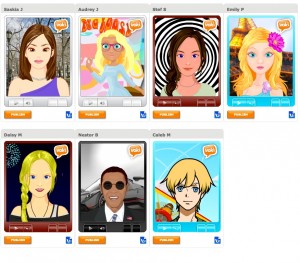
http://www.voki.com/php/classroom/PLPP/key=c9e888e79c699c1ffe4c0d3ec0172b3a
http://www.voki.com/php/classroom/PLPP/key=cfce7047770ec8eea43b3945b2d9928b
Room 11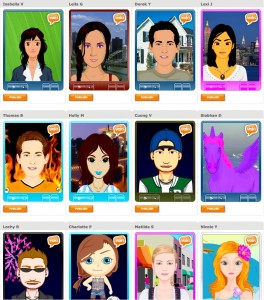
http://www.voki.com/php/classroom/PLPP/key=740fe79ffc0311b389f3ff208b053c33
Room 12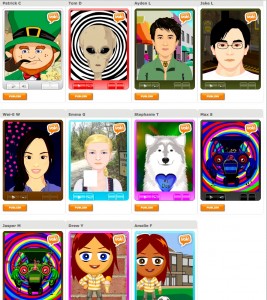
http://www.voki.com/php/classroom/PLPP/key=5a80a747a44a612ef246d038b0cdaf3f
Room 15
http://www.voki.com/php/classroom/PLPP/key=c63fc843cc555abbda53ebde7f37218a
Room 16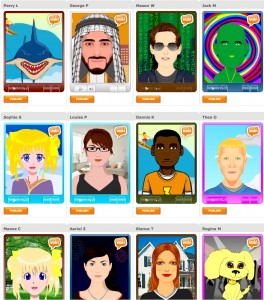
http://www.voki.com/php/classroom/PLPP/key=b9ebaa6a63f34d8834b0836e863a1239
My Family by Mira Room 5
Family Jobs
My Mum does the cleaning, washing, cooking, putting the rubbish bins out on Monday night so the garbage truck can collect the rubbish on Tuesday and lucky last giving me a goodnight kiss.
Since my mum does the cooking my dad has to wash the dishes. Because of that I have to wait until I can play with him after dinner, but I don’t mind because I’m allowed to read a book and go to bed at 8 o’clock so I can watch a short DVD.
My two jobs are cleaning my room and cleaning up my mess on the table at breakfast, lunch and dinner.
Year 6 Proposed Research Topics
These are the final broad themes for the project. Groups will be added to Edmodo once we decide what sub-topics are needed.
What do you thinks of these topics? What would you like to find out more about?
1. Food – shortages, water issues, wastages, quality (hormones and antibiotics in meat), GM foods, fresh and local food, soil erosion, water
2. Global Warming – effects on plants, deforestation, increase in natural disasters, greenhouse gases, droughts
3. Pollution – toxic waste, fresh air and poisonous gas, littering, electric cars, rubbish dumping, landfills, e-waste, nuclear power, recycling, traffic
4. Animals – introduced pests, impact of pollution, destruction of animal habitats, endangered species/ endangered sea life, cruelty by testing, animal rights
5. People – over-population, health issues (obesity/ mental health), safety from natural disasters, human rights
Week 7
Reception Students
Rooms 3 and 4 students continued to focus on identifying different feelings. We read a book about feeling sad, and discussed some things you can do when feeling sad.
Students then added to their mini books about feelings, and began to make a book on the iPad. This was a challenge which will take us a few weeks to complete.
Year 1/2 Students
This week students started to design a book which will reflect their learning about ‘Families’. Students made a mini-book, which will then form a plan for their book titled ‘My Family’ on the iPad. This will involve both oral, written and visual elements to tell their story.
Year 3/4 Students
Year 3 and 4 students were involved in a survey related to the cyber safety information we have been gathering. After completing the 8 survey questions, students were involved in collating data, using an Excel spreadsheet to enter the data, and then making a variety of graphs.
Year 5 students
Email accounts were set up.
Year 6 Students
Edmodo – connections established with students involved in the Week in the Life Global Project.
Year 7 students
Poplet – Students were introduced to a brainstorming and webbing software, which will be useful when researching.

